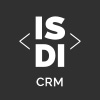Industries in which Salesforce is present

The Salesforce platforms, solutions and tools are varied, complex and customizable, so they can be useful for any kind of organization. Today we analyse in which industries and sectors Salesforce plays a relevant role.
When we talk about Salesforce as the best CRM in the world, we are not only referring to its wide set of solutions, but to its versatility and customizability. It would be a serious mistake to consider Salesforce solely as a platform for sales departments. In fact we have discussed it here, when we have analyzed other Salesforce clouds. That is the topic we want to dive into today: which industries is Salesforce present in? What are the industries for which Salesforce has developed specific solution environments? What role is the digital transformation in which we find ourselves playing?
Change and digital transformation
Cindy Bolt, SVP Manufacturing and Consumer Goods at Salesforce, analyses, in a corporate video, the general situation with digital transformation: “All industries are changing. Manufacturers want to connect more with their providers, distributors, and finally, with their clients”.
This constant paradigm shift is overly assumed today: past business models don’t work. Because of that, Salesforce helps any kind of companies and organizations to adapt to this necessary transformation.
Last June, Salesforce announced the launch of Government Cloud Plus, a cloud infrastructure specially design and adapted for the federal government of the United States, as well as many other state wide and local administrations of this country.
Not only is it a modernization of the service for all citizens of the United States, but the streamlining and digitization of these operations is added to the data security and compliance with regulations, provided by Salesforce systems and solutions.

Industries in which Salesforce is present
As we have seen, in this period of digital transformation, Salesforce evolves its products and services to be updated for the necessities of each industry. Let’s briefly review what their verticals are, below:
- Financial services: whether it is banking, insurance or any activity within finance, Salesforce offers innovative solutions to capture all those inputs of the customer, in order to know them better and offer them, through all channels, a much more positive experience. From the other side, it helps improve employee productivity through tools that make their tasks easier and take them to the next level.
- Healthcare: improving connectivity and interaction with the patient is the objective of Salesforce. In short, to achieve that patients can access, through the cloud, social networks and mobile devices, to aspects related to their health.
- Retail commerce: Disruption reached this sector long ago with online stores, however, innovation continues to make the customer experience fluid and as interesting as possible. Salesforce tools provide connectivity for stores to get a 360 degree view of the customer. In addition, they also empower the client to “combine the physical with the digital through a coherent journey on any device, channel and point of contact.”
- Manufacturing and consumer goods: “hyperconnected markets” allow the interaction of all the actors in the manufacturing process in practically real time. Salesforce collaborates in that each one of these steps of the process can be perfectly customizable. Likewise, data control allows for a closer relationship with the customer and better production management.
- Media and Communication: nowadays communication is key to almost every type of business. An adequate interaction assures the confidence and respect for the brand, which also improves the service and experience in marketing and sales areas. At the same time, Salesforce tools offer media the ability to monetize interactions, design and control advertising, etcetera.
Other areas and sectors below the Salesforce umbrella
Although Salesforce, on its international page, highlights the 5 sections that we have seen previously, the area in which it develops its clouds, solutions and services is much larger. For example in the area of public administrations, as we have commented in the case of Government Cloud Plus.
Therefore, as an example, Salesforce has tools for Transportation and Hospitality. For instance, in order to approach the challenge of new travelers, the professionals of this sector must offer dynamic reservations, personalized travel support and build loyalty for the client to come back. It can all be translated to logistics, customer support and proactive services.
We said at the beginning that every sector or industry may profit from the benefits provided by the constantly evolving CRM from Salesforce. In fact, the company makes available to NGOs a package (‘Nonprofit Success Pack’) which is an open source app with an industry standard data architecture, for better management of the organization and donors. It also has the “The Power of Us” program, to give these NGOs access to Salesforce products and services and “help them expand their collective impact.”
Post-COVID-19 reincorporation with Salesforce
And lastly, we want to point out the latest Salesforce initiative regarding the crisis generated by the new coronavirus pandemic. After the stages of lockdown –and subsequent de-escalation-, which have been experienced in many countries, the return to offices begins.
Salesforce has thought about this challenge and offers a response with the platform Work.com. It is, on one hand, a method to find all the resources needed to cope with this challenge of going back to the office. And on the other hand, this platform has third party stories of the Salesforce ecosystem, as well as experts’ recommendations and response models.
As Salesforce points out, Work.com “offers essential solutions designed to help companies reopen their workplaces as soon as possible, while helping to keep employees, customers, partners and communities safe and informed” in these times of international health crisis.
Big consultancy firms such as Accenture, Deloitte and PwC have already added their content as featured partners. Besides that, through Tableau, Salesforce makes available to anyone verified data on the evolution of COVID-19. Ultimately, this response shows Salesforce’s commitment to its customers, as well as the constant adaptation and updating of its CRM in search of new challenges and frontiers.

Did you find this article interesting? Share it!
Maybe your friends will also enjoy this.




